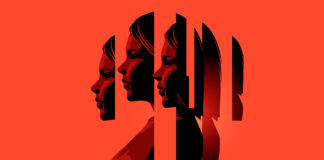The diamond with 1,000 facets | Aspects you didn’t consider when reading the biblical account of creation
Born in Africa, at the crossroads of three cultures—Arab, French, and Jewish—Jacques Doukhan was raised in a Jewish family. At the age of 18, he discovered the Christian gospel and became a Seventh-day Adventist, rejoicing that he did not have to renounce his roots in this church. Like Jews, Adventists observe the Sabbath and "share the same life ideals", explains Dr Doukhan.
Who has their head in the game?
In 2013, famous atheist author Richard Dawkins was voted the world's leading thinker in a global poll of 10,000 people in 100 countries. Not a single thinker from the fields of religion or ethics made the list. It's worth saying again: "Think forward!"
“God is against all forms of contraception.” True or false?
Did you know that if the current rate of population growth continues, the world's population will double in the next 40 years? Did you also know that if all available food resources on Earth were used to feed people, it would only be able to support 15 billion of us?
Saved by technology
The prospect of a future in which technology plays the supreme role in our lives is increasingly confirmed by the applications of scientific discoveries. In this context, it is even speculated that the nature of humanity will be profoundly changed, reaching a higher qualitative stage, so that, in the end, even the obstacle of death will be overcome.
Mindfulness: Little Red Riding Hood does not live in the present moment
"It was dark inside the wolf." Like a chef who reinterprets a traditional dish for an expensive urban restaurant, writer Margaret Atwood proposed to the students of her masterclass a reinterpretation of the story "Little Red Riding Hood", in line with the most current tastes and attention skills: a Little Red Riding Hood that lives in the present moment.
The relativity of time
Time can exist in many forms—work time, free time, leisure time—and it has a lot of possessive adjectives: my time, your time, our time. The relativity of time can often lead to confusion because of the accompanying mixture of emotions, such as fear, joy, satisfaction, or expectation. It was this relativity of time that led me to need to define it in my...
Are spiritual forces real?
Ideas about death, souls and afterlife existence are often intertwined with religious or spiritual beliefs—in other words, belief in the supernatural. But are spiritual forces present or observable in this world? Do they exist? Can they be observed, defined, categorised? Are friendly ghosts and vengeful spirits lingering in haunted houses real, are the paranormal investigators you see on television really fighting an evil spirit as they claim, or...
An impossible inventory of the most widespread fake news about COVID-19
The epidemic of false information in this worldwide pandemic is even more infectious than the virus itself. Fortunately, there is a vaccine for this epidemic of fake news: quality information and information filters. However, not everyone has been vaccinated. Here is an immunization effort.
COVID-19: Rehearsal for the big surprise
There has been a lot of speculation in the online environment about COVID-19 and the end of the world, but the connection between the two is more subtle than it first appears. It has been suggested that the pandemic is only the tip of the iceberg, that it is one of the seven last plagues of Revelation, or that it is the fourth...
AI and jobs: when your colleague is a machine
“AI is replacing human tasks faster than you think.” “Wall Street Job Losses May Top 200,000 as AI Replaces Roles.” “AI Set to Replace Workers Across 41% of Companies in the Next Five Years.” And more recently: “Bill Gates Predicts Only Three Jobs Will Survive the AI Takeover—Here's Why”. These headlines are fueling growing anxiety among those unfamiliar with artificial intelligence or those...
Symptoms of a failing marriage
The prelude to a divorce often comprises highly destructive behaviours, which can prevent a couple from keeping their enthusiastic promise of staying together "for better or for worse until death do us part," says American psychologist Dr John Gottman.
Digital detox: a practical guide to a simpler life
Digital detox has become a real need for those who’ve realized that while the hyperconnectivity of the digital age promised unlimited access to information and entertainment—without sacrificing efficiency—many are now discovering that constant connectivity comes at the cost of inner peace. But is it still possible to reclaim simplicity in a world that seems unable to breathe without the internet?
The myth of more
In the late 1980s, Donald Trump was asked how much money it would take to make him happy. His answer? “Ten per cent more.”
One lottery ticket and an unexpected ending
Whether we admit it or not, our lives are conditioned by money—mostly by the lack thereof. There are few who manage to snatch themselves out from under its spell, and even fewer who want it just to be able to give it away. Among the latter is Rachel Lapierre.
“Beyond the Burden of Proof” documentary. Are we made to believe?
In the centuries since science has gained autonomy from religion, spokesmen on both sides have grown accustomed to looking at each other with suspicion, ignoring each other, and addressing their followers by preaching against the “others." There seemed to be little hope that scientists and people of faith would listen to each other and try to develop a common language, if not a...


























